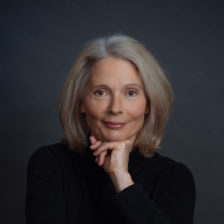One of the great pleasures of visiting Pender Island is going to the Nu to Yu store (yes, it’s spelled like that), which is full of islanders’ used clothing, books, games, kitchen ware and furniture, and which can be yours for a pittance. All the money they earn goes back into the community – it is one of those fantastic “win-wins.”
So while I was there the other day I came across a copy of “Harriet the Spy,” sitting on the shelf.
I loved this book when I was a kid. I read it when I was around ten. I loved it so much that, written on the inside cover of the first diary I ever kept (at age eleven) is written, “Susan Nielsen The Spy.” (And no, I’m not going to talk about that darned “a” in Susan!). But, I wondered, would I still love it? Would it hold up? I remembered Ole Golly, and The Boy With the Purple Socks, and Harriet riding in the dumbwaiter … So I bought it – for the low low price of ten cents.
And boy, did it hold up. Not only did it hold up, it made me realize that Harriet has been lurking deep in my brain pan with every book I’ve written, and that I owe Louise Fitzhugh a debt of gratitude. I always cite Judy Blume as a big influence, and she is. But so is Louise. And the sad part is, I’ll never be able to send her a fan e mail, because she died years ago, at the young age of 46, of an aneurism – all things I only discovered after re-reading the book.
“Harriet” was published in 1964, the year I was born. How funny that I rediscovered it as I turned half a century old (I can’t believe I just admitted that on my blog, but what the hell). I probably read it ten years after it was published. It is insanely good and original. It was a controversial book because Harriet was not always a likeable protagonist, far from it sometimes, and she was not at all a girly-girl. Which is why, of course, legions of girls like me fell in love with her. And she wanted to be a writer.
I’d forgotten that her best friend Sport’s dad was a writer. Poor Sport has to single handedly run their household because his dad is such a mess, either working or sleeping or depressed because his novels aren’t selling. They have great observations about writers, like: “Writers don’t care what they eat. They just care what you think about them.”
Fitzhugh’s observations about adults, seen through a child’s prism, are hilarious and real. And nestled beneath the humor is an aching poignancy. I felt for Harriet all over again, as I did her friends whose parents were dysfunctional, or divorced, or had a father who’d just skipped out. And then there’s Harrison Withers, one of the people she spies on. I’d forgotten the humanity wrapped inside this book. And I sincerely hope kids are still reading it today. When I go into schools and show them my diary, and ask kids if they’ve read “Harriet the Spy,” I’m always surprised by how few hands go up. More of them have seen one of the movies – I haven’t, but I can guarantee none of them would hold a candle to the book.
So, from here on in I will definitely cite Louise Fitzhugh as a major influence – there is so much Harriet in Violet, and Ambrose, and Henry – and I didn’t even know it.

